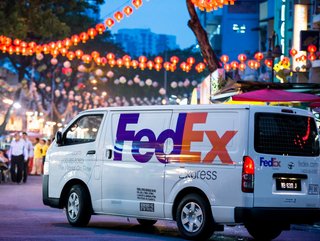Balancing last-mile cost control with personal service

With cost cutting now a major objective for organisations, supply chain is one area that many organisations target. In pre-pandemic times, cost cutting was largely the domain of procurement departments, but now every facet of the supply chain is becoming more agile, efficient and cost effective.
Logistics is key among these areas, with the last-mile always having been the most complex and costly part of delivering goods. These days, businesses are not only seeking to reduce supply chain costs, they are also doing so while adapting to market uncertainty.
A recent EY report declared that although there is a great deal of urgency around cost cutting, the methods behind the measures ought not be short-sighted, “especially considering that the goal is not just savings for now but adding resilience in the longer term”.
Here, FedEx Express Managing Director Eric Tan, who is based in Singapore, discusses the role the company’s fulfilment strategies in the region plays in helping deliver a better service at a lower cost.
What has shaped fulfilment in Singapore?
It is important to first understand the current state of fulfilment in Singapore, which has been shaped by evolving consumer expectations. While consumers in Singapore have always expected best-in-class order fulfilment, marked by timely and transparent deliveries, the COVID-19 pandemic reshaped expectations to now include elements of personalisation.
As a result, logistics providers had to re-evaluate the way they operated, so they could continue empowering businesses to keep up with consumer expectations. In the backdrop of increasing shipping volumes driven by the growth of e-commerce many logistics providers have shifted away from the traditional one-size-fits-all approach of reducing costs and optimising processes, to meet the growing customer demand for personalisation.
In our What’s Next in ecommerce survey, we found that, to improve the ecommerce experience, consumers expect personalisation, which includes choice and convenience in terms of deliveries. For the business, this also means reduced missed deliveries and delivery attempts.
As part of efforts to increase the personalisation experience, we integrated WhatsApp into our FedEx Delivery Manager International platform, providing customisable delivery options and alerts, such as flexibility to pick the timing and location for deliveries.
We also collaborated with third-party partners to expand last-mile delivery options through 24/7 self-collection with more than 2,000 retail touchpoints across the country.
Lastly in July this year, we introduced picture proof of delivery for express residential deliveries in Singapore – giving customers the assurance that their packages have been delivered with visual confirmation.
How do you ensure efficient fulfilment for international markets?
Several crucial fulfilment factors contribute to the success of businesses in international markets, helping to ensure efficient operations and customer satisfaction. One of these is affordable, time-definite and reliable deliveries.
Meeting the demand for timely and reliable deliveries is paramount in international markets. Customers expect their shipments to arrive on time and in good condition. In recent years, there has been an increasing call for more-affordable shipping options that offer the same level of reliability, especially for non-time-critical deliveries.
In response to this demand, we introduced our FedEx International Economy services, connecting APAC to 170 markets worldwide. This service allows us to deliver parcels within two to five business days in APAC, and to major markets in Europe and the US in four to five business days.
The availability of affordable shipping options is also helping businesses, especially online retailers, manage cost, with order returns a standard component of e-commerce. For example, return orders are generally considered non-time-critical shipments and businesses can reduce costs by arranging such orders to be shipped by non-priority arrangements.
What role does a global warehousing network play?
Having an extensive global warehousing network is critical when operating in international markets. Such networks enable logistics providers to strategically store and distribute products across different regions, optimising supply chain efficiency and reducing shipping times and costs.
Understanding the importance of a well-planned warehousing network to support our global logistics operations, we have 1,750 FedEx Express stations strategically positioned near key international markets. These stations serve as pivotal hubs for sorting, processing, and dispatching shipments to various destinations worldwide.
In Singapore, our South Pacific Regional Hub acts as a regional consolidation point for trans-shipments in and out of Australia, New Zealand, and Southeast Asia.
How does the balance between efficiency and sustainability affect fulfilment strategies?
Balancing between efficiency and sustainability can have a significant impact on fulfilment strategies for logistics providers. Fulfilment strategies are designed to optimise the process of delivering products to customers while keeping cost-effectiveness and customer satisfaction top of mind.
However, in today's environmentally conscious world, sustainability has become a crucial consideration for logistics providers who are expected to be reducing their environmental impact and meeting the expectations of socially responsible consumers.
Achieving sustainability goals often entails substantial investments in practices and technologies that reduce environmental impact







